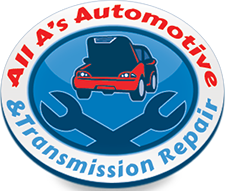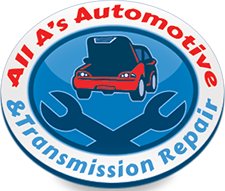Auto Transmission: Common Issues and Troubleshooting Tips

 Working on modern vehicles these days is becoming more complicated without obtaining specialized training and equipment. With all the electronic accessories and elevated comfort features, automobiles get more technically advanced every year. Many automated systems even signal the car owner when auto service is needed. However, that doesn’t mean you should ignore car problems when they occur or skip routine maintenance. Let’s learn how to quickly spot common auto transmission issues, like leaking fluid, gear slippage, and a faulty hydraulic pump, to help reduce expensive vehicle repairs down the road.
Working on modern vehicles these days is becoming more complicated without obtaining specialized training and equipment. With all the electronic accessories and elevated comfort features, automobiles get more technically advanced every year. Many automated systems even signal the car owner when auto service is needed. However, that doesn’t mean you should ignore car problems when they occur or skip routine maintenance. Let’s learn how to quickly spot common auto transmission issues, like leaking fluid, gear slippage, and a faulty hydraulic pump, to help reduce expensive vehicle repairs down the road.
Identify Leaking Fluids
Leaking fluids is usually a sign that your vehicle requires maintenance. You can perform a little detective work to identify which fluid is leaking and where it is coming from. Armed with this knowledge, you may discover that you can remedy the issue yourself or schedule a service with your local auto technician. So, where do I start? Let’s look at the following fluids to determine how to tell them apart.
Auto Transmission Fluid
Auto transmission fluid is a synthetic lubricant in your vehicle’s transmission system. Fresh fluid should fall within a color range of bright red or translucent pink to light brown. Transmission fluid provides the transmission components with superior lubrication, thermal stability, and oxidation resistance. It also reduces friction, dissipates heat, and provides hydraulic pressure to the transmission system. Transmission fluid lets your vehicle shift gears and transfer power from the engine to the wheels. Your vehicle’s transmission system requires adequate transmission fluid levels to operate effectively.
Leaking fluid may indicate issues with transmission seals, gaskets, or a faulty transmission pan gasket. It can also create problems with gear slippage and rough shifting. If you identify leaking transmission fluid, schedule a service appointment right away to address the issue.
Engine Coolant
Engine coolant (distilled water plus antifreeze) is usually bright yellow-green, orange, pink, or blue and smells sweet. A visible puddle of brightly colored fluid under your vehicle indicates a coolant leak. Clean it up immediately since antifreeze is toxic if ingested. Schedule a diagnostic service for your automobile if it is leaking engine coolant.
Engine Oil
Engine oil can appear in multiple shades of amber based on oil type and vehicle age. If there is light brown, black, or even a translucent greenish color beneath your vehicle, it may be leaking engine oil. Chemical additives in engine oils can cause it to appear darker, even when new, and may cause the oil to darken faster.
Over time, engine oil breaks down, and the additives consumed. The longer you wait between oil changes, the darker the engine oil becomes.
Power Steering Fluid
Power steering fluid colors vary based on your vehicle’s make & model. Most vehicles use red, green (Volkswagen, Audi), or pink power steering fluid. It can also be yellow or clear, but those options are fairly rare. If you see red liquid under your vehicle, it’s important to determine whether it is power steering or transmission fluid because both systems may use the same color fluid. If the leak is toward the front of the vehicle, near the engine, it’s probably power steering fluid. Read your owner’s manual to verify which color and type of power steering fluid your vehicle uses.
Locate Faulty Components
Once you have ruled out leaking fluids as the reason behind your vehicle’s transmission issues, we can move on to the transmission system components. Faulty, broken, or worn transmission system components require replacement to function correctly. Let’s review the most common reasons for auto transmission issues.
Hydraulic Pump
The hydraulic pump moves the transmission fluid to change gears. When it is faulty, the signs may include:
- Cannot Shift Gears
- Illuminated Check Engine Light
- Gear Slippage
- Low Transmission Fluid
- Transmission Dashboard Light
- Whirring or Whining Noises
Valve Body & Transmission Control Module (TCM)
The valve body contains many sensors and valves that perform like an ECU (engine control unit). When shifting gears, the transmission control module (TCM) communicates with the solenoids in the valve body, instructing them when to open and close.
A faulty valve body or TCM cannot properly direct the pressurized fluid from the hydraulic pump to the appropriate transmission components for your vehicle to change gears smoothly.
Torque Converter
In automatic transmissions, the torque converter replaces the clutch used in a manual transmission. It is a fluid coupling, connecting the engine to the transmission via transmission fluid pressure. Since you cannot shift gears while the transmission is engaged to the engine, a torque converter allows your engine to idle while the transmission shifts up or down without stripping or damaging the gears.
Gears, Clutch Packs, Brake Band
Your vehicle’s gear sets, clutch packs, and bake band work together to provide smooth shifting, acceleration, and deceleration. Low or old transmission fluid can alter or even prevent these components from operating correctly. Excessive wear and damage to these components can also create transmission issues like:
- Dashboard Warning Lights (Transmission or Check Engine)
- Gear Slippage
- Grinding Gears
- Rough Shifting
Routine Auto Transmission Maintenance
Your auto transmission is a relatively complex system of components requiring transmission fluid to operate smoothly. Many modern cars utilize a closed transmission system requiring service by a trained technician with computerized diagnostic equipment. Car owners can check the transmission fluid on older vehicles via the transmission fluid dipstick. Always follow the transmission system maintenance schedule suggested in your owner’s manual. However, if your vehicle exhibits any transmission issues or leaking fluids, schedule an auto transmission maintenance service right away.
Auto Transmission Service in Midland, MI
At All A’s Automotive & Transmission Repair, you can expect outstanding auto transmission service from our certified technicians for a fair price. If your vehicle has issues with gear slippage, leaking fluid, or the hydraulic pump, call us. We’re your local family-owned independent service center and dealer alternative in Midland, MI.
Schedule Diagnostic Auto Transmission Service
Call (989) 631-4672 or visit us online to schedule your auto transmission service and ask about our 24-month / 24,000-mile nationwide warranty.
Posted in: Transmission
Leave a Comment (0) ↓
